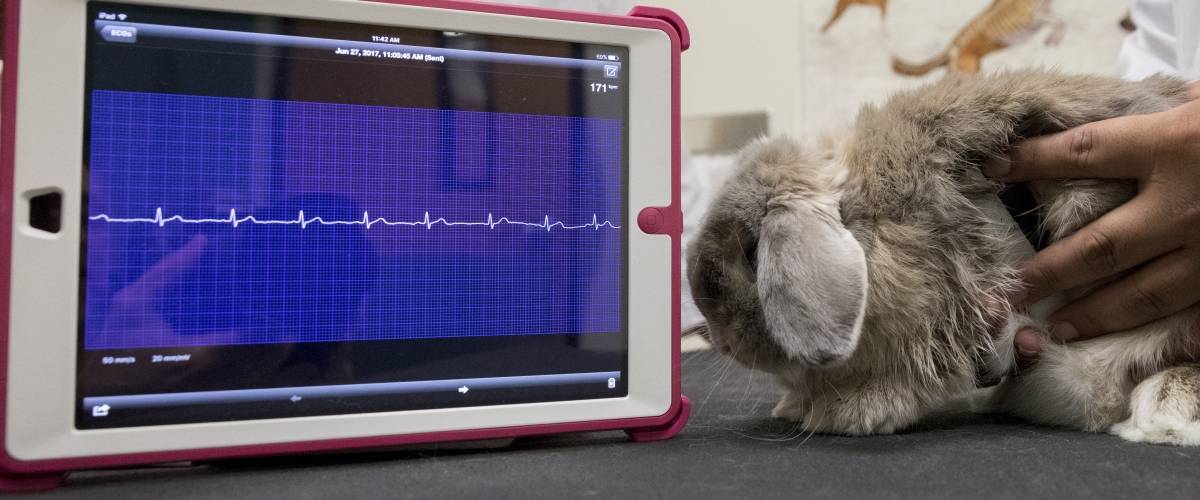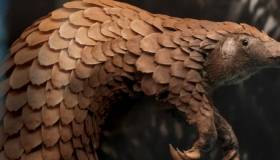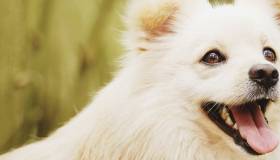
October 22, 2020 – Exotic or specialty pets – including favorites like fish, parrots, ferrets, rabbits, turtles, snakes and lizards – are becoming more popular in American households. According to the AVMA Pet Ownership and Demographics Sourcebook, more than 13% of Americans own an exotic pet. And as their popularity grows, so do the number of studies we fund to help these pets live longer, healthier lives.
Here is a sampling of some of the exotic pets we are helping today:
Parrots
An estimated 20% of captive parrots are affected by high cholesterol levels, one of many fatty disorders affecting these animals. One ongoing study aims at improving the diagnosis and treatment of fatty disorders in parrots. Researchers are studying if statin drugs may provide a solution for parrots with this disorder. Other studies we have funded focused on nutrition, pain management and diagnostics for deadly diseases, including budgerigar fledgling disease virus, deadly to young budgies, and proventricular dilatation disease, a fatal gastrointestinal disease of parrots.
Bearded Dragons
Bearded dragons often are popular pets for first-time reptile pet parents because they are small and easy to handle. Foundation-funded research helped established guidelines on prescribing appropriate pain-relieving drugs for bearded dragons that also can benefit other lizards. In ongoing studies, researchers are investigating if live food exposed to ultraviolet sunlight can increase vitamin D and help prevent metabolic bone disease as well as improve growth in bearded dragons. Findings could help identify a relatively cheap food source as an effective dietary supplement of vitamin D for both healthy and deficient insectivores who need the sunshine vitamin to stay healthy.
Ferrets
In the 1990s, a pivotal Foundation-funded finding helped save and reduce euthanasia of ferrets. At that time, little information was available on rabies in ferrets. Pet ferrets that bit people were regularly euthanized for lack of a better control method. The Foundation funded critical research that established rabies quarantine and vaccination guidelines for ferrets. In 1998, thanks in part to this research, the NASPHV (National Association of State Public Health Veterinarians) Compendium Committee for Rabies included, for the first time, ferrets – with all recommendations that were stated for dogs and cats. These new guidelines helped to pave the way toward reducing euthanasia of ferrets and keeping pet ferrets healthy and safe. Today, our ferret health studies are focused on the pet ferrets’ wild cousins, specifically trying to save the black-footed ferret from extinction.
Rabbits
According to the Humane Society of the United States, rabbits are the third most relinquished companion animal behind cats and dogs. And they also seem to be favorite pet summer research topic for our funded veterinary students. In one study, a veterinary student and her team looked at destructive chewing and enrichment for bunnies to help identify strategies to keep these rumbunctious critters from being relinquished to shelters. In another study, a veterinary student worked on the iBunny project, a clinical study on the efficacy of a smartphone ECG recording application in measuring traces in rabbits. Rabbits have a much higher risk of death due to sedation and anesthesia compared to cats and dogs, with cardio-respiratory dysfunction causing up to 40% of these deaths. By adding an easy-to-use, pre-screening smartphone ECG into protocols for rabbit intake, the team hopes to decrease the risk of death and increase survival rate of rabbits during routine procedures, as well as improve their care during checkups.
Snakes
Inclusion body disease (IBD) is an emerging and devastating disease in snakes, causing severe neurological problems and is one of the few diseases affecting captive boas and pythons worldwide. Our funded researchers developed more accurate IBD testing that could be used to keep these snakes disease-free. Also, conservation managers could use the tools to screen snakes intended for release as part of reintroduction programs. In ongoing studies, researchers continue to learn more about the biology of IBD in the hopes of developing improved diagnostics and new treatments to help manage this ongoing health crisis in boid snakes.
Exotic Pet Ownership
Exotic pet ownership comes with unique challenges. Each species has highly specific health, diet, exercise and housing needs, and lifespans vary greatly, particularly in birds that can live anywhere from a few years to many decades. The Foundation highly recommends that potential exotic pet owners do their homework to fully understand the care needed to keep their pet healthy, and work closely with a veterinarian who specializes in exotic pet medicine.



